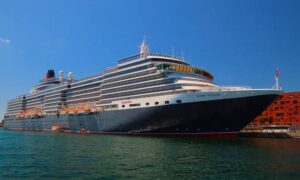The marine industry has seen a wave of innovations over the past decade. From the rise of automation to the push for sustainability, these advancements are reshaping how we build, navigate, and experience life on the water. But what are the key changes, and what do they mean for the future of the marine world? In this article, we’ll explore the major shifts in the industry and how leaders in marine industry panels are driving the transformation.
Let’s set sail and dive into the last 10 years of change.
- The Rise of Smart and Autonomous Boats
One of the most significant advancements in the marine industry is the development of smart and autonomous boats. These vessels are equipped with advanced technologies that enable them to navigate, monitor systems, and even dock themselves with minimal human intervention. It’s not science fiction—autonomous boats are already being tested and used for applications ranging from commercial shipping to ocean research.
The integration of smart technologies and sensors allows boats to collect and analyze real-time data, optimizing routes, fuel consumption, and safety. With automated navigation, collision avoidance systems, and remote monitoring, smart boats are making marine travel more efficient and secure.
- Enhanced Safety and Connectivity
Safety has always been a top priority in the marine industry, but the last decade has seen a significant leap forward with the introduction of advanced safety systems and improved connectivity. From real-time weather monitoring to automatic distress signals, these systems provide boat operators with critical information and communication tools.
One key development is the use of marine industry panels equipped with HMI (Human-Machine Interface) systems that offer intuitive control over navigation, lighting, and onboard systems. Companies like Barantech are focusing on making these panels more user-friendly and resilient, ensuring that they perform well in the challenging marine environment.
This combination of safety and connectivity is particularly beneficial for long-distance travel and remote regions where reliable communication and monitoring can be a matter of life and death.
- Advances in Sustainable and Eco-Friendly Technologies
The marine industry isn’t immune to the global push for sustainability. Over the past 10 years, we’ve seen a shift towards eco-friendly propulsion systems and sustainable materials. From hybrid engines to fully electric boats, these innovations are reducing carbon footprints and lowering emissions.
Some key advancements in sustainability include:
- Electric and Hybrid Propulsion Systems:More boats are now being equipped with electric or hybrid engines, which offer quieter, more efficient, and environmentally friendly alternatives to traditional fuel-based engines.
- Solar Panels and Renewable Energy Integration:Solar energy is becoming a popular addition to marine vessels, providing supplementary power for onboard systems and reducing fuel consumption.
- Eco-Friendly Hull Designs and Materials:Innovative hull designs and lightweight materials are helping boats glide more efficiently through the water, reducing drag and fuel usage.
These changes are not just about meeting regulations—they’re about creating a more sustainable future for the industry.
- Digitalization and IoT Integration
Digitalization is revolutionizing how the marine industry operates. The integration of the Internet of Things (IoT) is enabling boats to collect and transmit data, monitor critical systems, and optimize performance like never before. This means smarter decision-making, improved maintenance, and enhanced safety.
Digital systems are also playing a major role in fleet management. For commercial vessels, this means better tracking of fuel usage, cargo conditions, and engine health. For recreational boats, it offers convenience and peace of mind with features like remote monitoring, automated alerts, and real-time weather updates.
Marine industry panels equipped with advanced digital interfaces are central to this transformation, making it easier for operators to access and control all onboard systems from a single location.
- Increased Focus on User Experience
With the rise of recreational boating, there’s been a growing emphasis on user experience and onboard comfort. From ergonomic control panels to intuitive navigation systems, the industry is prioritizing designs that enhance the boating experience for users of all levels. This focus on user experience is driving innovations in everything from touchscreen interfaces to onboard entertainment systems.
For instance, marine industry panels now feature more responsive and tactile interfaces, thanks to advances in piezo technology. These improvements aren’t just about aesthetics—they’re about making boating safer, more accessible, and more enjoyable for everyone.
- Automation and Predictive Maintenance
Gone are the days of manual inspections and reactive repairs. Over the last decade, the marine industry has embraced automation and predictive maintenance, leveraging sensor technology to monitor key systems and predict when maintenance is needed.
Advanced sensors now track engine performance, hull integrity, and even the condition of propellers, alerting boat owners to potential issues before they become costly problems. This proactive approach minimizes downtime, reduces repair costs, and extends the lifespan of marine vessels.
- Advanced Navigation and Communication Systems
Navigation technology has come a long way in the past 10 years. With the introduction of real-time GPS, sonar, and radar systems, navigating the open seas has never been more precise. Modern marine industry panels provide comprehensive navigation tools that integrate radar, GPS, and chart plotting systems into a single interface.
Additionally, communication systems have been significantly improved with the integration of satellite communication and automated emergency alert systems. These advancements ensure that vessels are connected to shore support and emergency services at all times, improving safety for both commercial and recreational boaters.
- Impact of Regulations and Standards
The past decade has seen an increase in regulations and standards aimed at improving safety and reducing environmental impact. From stricter emissions standards to more rigorous safety protocols, these changes have pushed the industry to innovate and adopt new technologies.
One of the significant areas of focus has been the development of marine industry panels that comply with international standards for safety and performance. These panels are designed to withstand harsh marine conditions while providing intuitive control and monitoring capabilities.
The Future of the Marine Industry
As we look ahead, the marine industry is poised for even more exciting advancements. From autonomous vessels and sustainable technologies to immersive AR navigation and advanced marine industry panels, the next decade promises to bring even greater changes.
Companies like Barantech are at the forefront of these developments, offering innovative solutions that enhance safety, connectivity, and efficiency on the water. By focusing on the integration of advanced HMI solutions, they are helping to drive the industry forward.
In conclusion, the marine industry has undergone a significant transformation over the last 10 years. From smart boats and sustainable technologies to digitalization and improved safety, these changes are reshaping how we experience the open waters. And with leaders like Barantech paving the way, the future looks bright for both commercial and recreational boating.
Ready to explore these innovations for yourself? Dive into the world of marine advancements and discover how the last decade has changed the industry for the better.































